Affiliate disclosure: This post may contain affiliate links. Please see our Privacy Policy.
Apple cider vinegar is incredibly useful in the kitchen, but you can also use it all around your home and garden. Using apple cider vinegar for cleaning, pets, beauty, and health will allow you to choose a natural, non-toxic alternative to many modern chemicals.
It has natural health benefits, and has been used in traditional medicine as well.
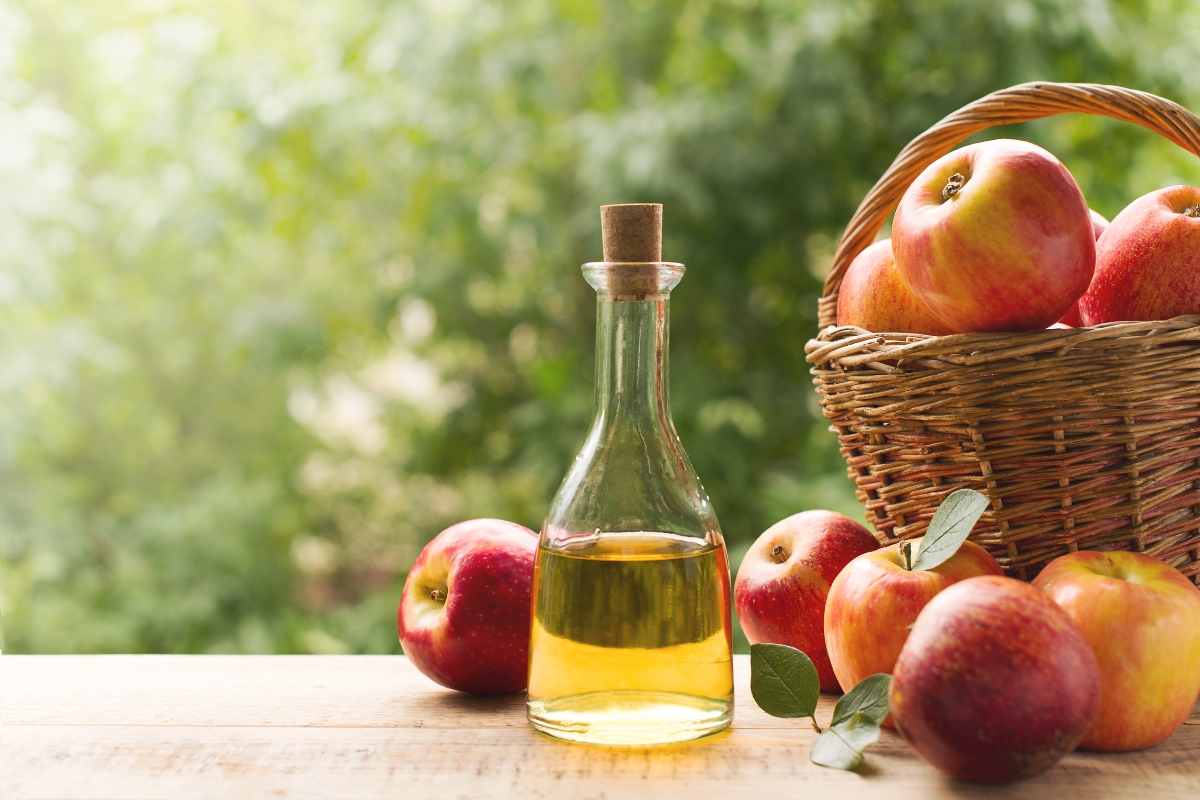
We make our own apple cider vinegar using fresh pressed homegrown apples, and it takes the same amount of time to make a quart as it does a five-gallon bucket full.
When you have apple cider vinegar by the bucketful, you can get creative with your uses, and I’ve learned over the years that there are an unbelievable number of ways to use apple cider vinegar around the house and in the garden.
We use it for cooking and preserving, of course, but we also use it for cleaning, crafting medicines, treating garden pests, and maintaining our pet’s coats (and general health).
There are more than 100 practical ways to use apple cider vinegar, and you’ll be amazed at just how useful this common kitchen ingredient can be!
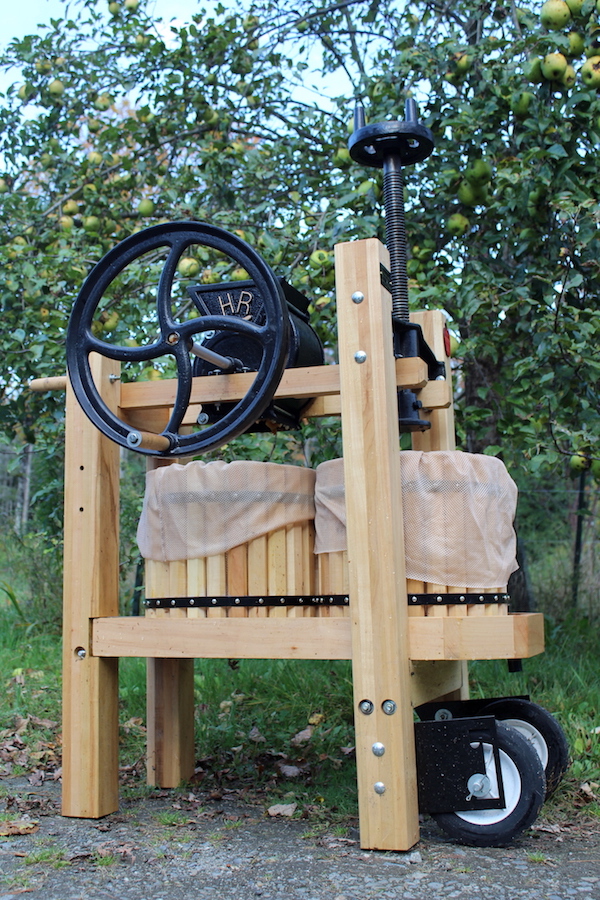
This article is written by Rea Yoh, a freelance writer who grew up in rural Illinois, raising backyard chickens. She graduated with honors in Biology and Science, Technology, and Society from Brown University, and her background in research helps her get to the heart of any question. She has a passion for animals, the environment, and sustainable living.
What is Apple Cider Vinegar?
Apple cider vinegar, also known as ACV, is a type of vinegar made from fermented apple juice. It is golden brown and has a fruity flavor. Because it is fermented, apple cider vinegar contains nutrients, probiotics, and enzymes that are beneficial for your health.
It’s a very popular product within the wellness community because of its numerous health benefits, like helping with weight loss and aiding digestion. Beyond its health benefits, apple cider vinegar has many uses and is utilized in cooking, cleaning, gardening, and more.
Some kinds of apple cider vinegar contain the “mother.” This is a mass of beneficial bacteria that converts apple cider into vinegar, and it appears in the form of a stringy cloud. This nutritional gold mine can be used to start other types of vinegar. It’s what contains those probiotics and nutrients, so make sure to get unfiltered apple cider vinegar, which has preserved the mother.
Apple cider vinegar is composed of 94% water, 5% acetic acid, and 1% carbohydrates. The acetic acid percentage varies by brand, but it’s generally 5%.
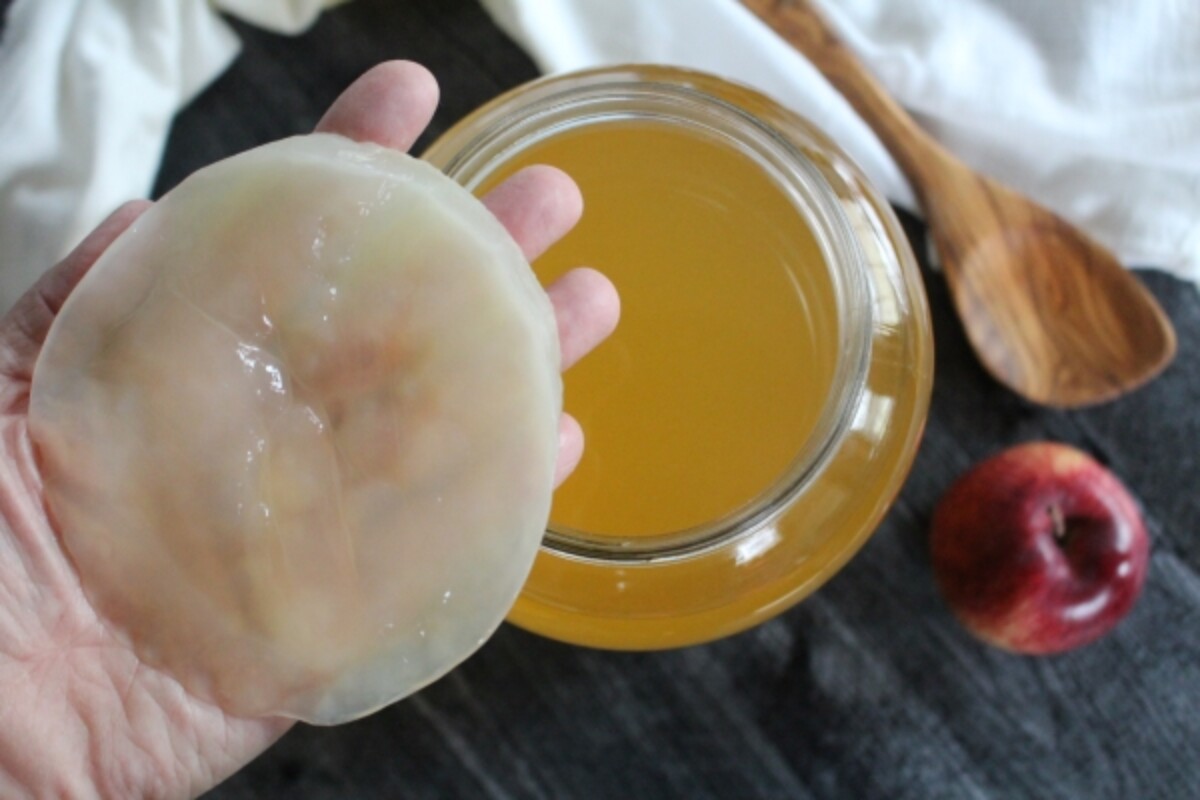
How is Apple Cider Vinegar Made?
Apple cider vinegar is made when apple juice undergoes double fermentation, which is when juice is converted into alcohol and then vinegar. First, the apples are crushed and juiced. Yeast and bacteria are then added to the juice to start the process of fermentation, although the microbes that already live on apples are enough to start the process.
Over the course of a few weeks, the yeast consumes the sugar in the apple juice and converts the cider into alcohol. The bacteria then convert the alcohol into acetic acid, which gives the vinegar its sour taste and smell. For a deep dive into the microbiology of apple cider vinegar production, this scientific article in Vinegars of the World does a good job of explaining the process.
Making apple cider vinegar at home couldn’t be more simple–you only need three ingredients: apple cider, wine yeast, and store-bought ACV. Check out my article here on how to make your own apple cider vinegar.

Apple Cider Vinegar Uses
Apple cider vinegar is best known as a supplement in the health community and has numerous scientifically-backed benefits. It has tons of other uses beyond wellness–you can use it to detangle hair, get rid of coffee stains on mugs, and more. A bottle goes a very long way. I’ve put together this list of how you can use apple cider vinegar in your home. You might consider making your own after seeing how useful it can be!
Here’s are some of the types of uses for apple cider vinegar that I’ll be covering:
- Apple cider vinegar for cleaning
- Apple cider vinegar as a home remedy
- Apple cider vinegar for hair
- Apple cider vinegar for skin
- Apple cider vinegar for beauty
- Apple cider vinegar for pets
- Apple cider vinegar for cooking
- Apple cider vinegar for baking
- Apple cider vinegar for yard work and gardening
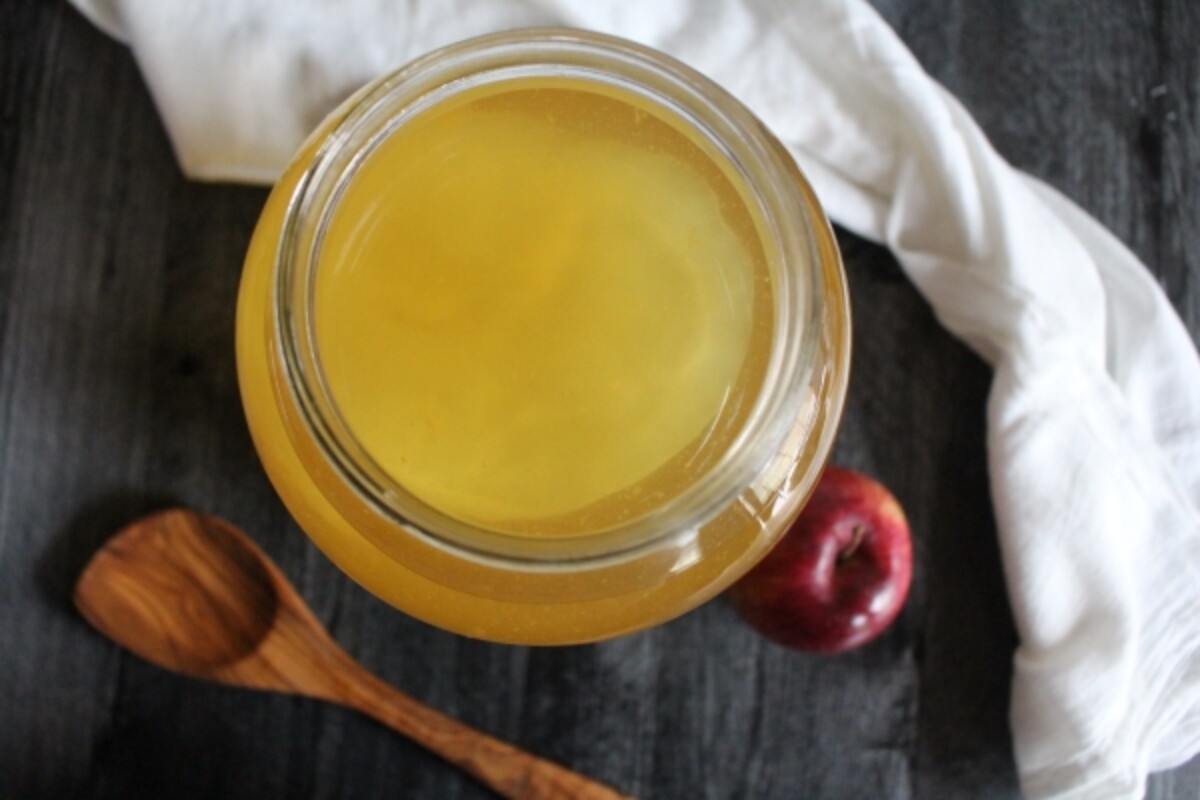
Apple Cider Vinegar for Cleaning
If you want a naturally clean home, apple cider vinegar is the miracle that you’re looking for. Clean your windows, microwave, and laundry using all of the same ingredient! Apple cider vinegar is an acid, and acids have many uses in cleaning.
When cleaning with apple cider vinegar, it’s important to avoid using it in combination with certain chemicals. Using it with chlorine bleach, for example, will create toxic chlorine gas. You should also avoid mixing it with hydrogen peroxide. Some surfaces will not tolerate the acidity of apple cider vinegar. Avoid using apple cider vinegar on stone surfaces, cast iron, unfinished wood, and phone screens.
Disinfects Surfaces
Apple cider vinegar is a natural disinfectant. Its antibacterial properties are backed by science–studies have shown that a mixture of ACV and water is able to stop the growth of common household bacteria (E. coli and S. aureus), as the acetic acid in apple cider vinegar kills these microbes.
While it’s tough on germs, it’s safe to use on many household surfaces, including those that you eat off of, unlike commercial cleaners that have harmful chemicals. To make an ACV disinfectant, mix 1 part vinegar and 2 parts water. If you don’t like the smell of vinegar, add a few drops of your favorite essential oil.
Clean windows
Clean windows make life so much brighter. The acid in apple cider vinegar is great at cutting through grease and grime, leaving your glass streak-free. Let more sunshine into your home by making an apple cider vinegar window cleaner.
To make a glass cleaner with apple cider vinegar, combine equal parts vinegar and water, adding essential oils if you’d like. For outdoor windows or windows that are particularly dirty, adding a bit of dish soap will help. Use a microfiber cloth to dry.
Remove Soap Scum
When soap debris and minerals in tap water mix, soap scum results. The more soap scum builds, the harder it is to get off of surfaces and the worse it looks.
Apple cider vinegar is acidic, and it works as a demineralizing agent, meaning it breaks down mineral buildup.
You can make an apple cider vinegar cleaner that cuts through soap scum without the harsh chemicals of commercial cleaners. Mix equal parts water and apple cider vinegar and a small amount of dish soap to make a soap scum cleaner. Spray it on the scummy surface and let it sit for several minutes. Rinse with hot water after.
Clean Kitchen Countertops
The antibacterial properties of apple cider vinegar make it great for cleaning countertops. It cuts through grease and grime easily, and it’s safe to use on surfaces that you eat off of.
Make sure to dilute the vinegar (one part vinegar to two parts water) to make sure the acid doesn’t damage your surfaces.
Remove coffee stains from mugs
If you love to drink coffee but don’t love the stains it leaves on mugs, you’re in luck–apple cider vinegar can get rid of those unsightly coffee stains.
To clean dirty mugs with apple cider vinegar, mix boiling water with vinegar (one to one) so that the water-vinegar level is above your stain. Let sit for thirty minutes, and then scrub with steel wool. This works with tea and hot chocolate stains, too.
Clean Bathroom mildew and mold
Mold and mildew thrive in humid spaces like the bathroom, and they not only look gross but also contribute to respiratory problems. Apple cider vinegar kills and prevents the growth of certain types of household fungus.
Spray the apple cider vinegar directly onto the moldy surface and let sit for an hour. Then scrub away the mold using a sponge or brush.
Freshen the air
Apple cider vinegar is great for cleaning surfaces, but did you know it can also clean the air? The acetic acid in apple cider vinegar bonds with stinky volatile compounds.
Unlike a lot of chemical cleaners like Febreeze, ACV doesn’t just mask the smell but neutralizes it. The smell of the vinegar itself doesn’t linger after you’re done using it, but feel free to add some essential oil if you wish.
Keep a small bowl of vinegar in stinky areas, or spray directly into the air.
Neutralize kitchen odors
If you’ve ever cooked something funky, you know that the smell can linger in your house for days–not great for when you have guests over.
As a natural scent neutralizer, apple cider vinegar can fix that. Simmering vinegar or keeping a small bowl in the kitchen will help get rid of kitchen stink.
Microwave Cleaner
Microwaves are a convenient way of reheating leftovers, but the sight of grease splatters and old food residue might make you lose your appetite. You can easily clean your microwave with apple cider vinegar. Because it is acidic, apple cider vinegar .
Mix one cup of water with one tablespoon of apple cider vinegar in a microwaveable bowl. Microwave on high until boiling, about three minutes. Let it sit for a few minutes. Wipe the microwave with a sponge or washcloth.
Dishwasher Cleaner
While you probably use your dishwasher to clean your dishes many times per week, how often do you wash your dishwasher? How much grease, food debris, and soap scum does your machine handle? It’s important to keep your dishwasher clean to keep it running its best.
Instead of using store-bought detergents, try using apple cider vinegar to clean your dishwasher. The antifungal and antibacterial properties will clean the machine, and the acidity will cut through any soap scum or mineral buildup.
Put a cup of apple cider vinegar in the top rack of your empty machine, then run a cycle and let air dry.
Coffee Machine Cleaner
If a morning cup of joe is part of your daily routine, you know that your coffee machine needs regular cleaning to keep your drinks tasting fresh. The natural minerals in water build up in coffee machines over time, which requires you to descale your machine or suffer through stale-tasting coffee.
While you can use store-bought descaling agents, apple cider vinegar does the job just as well. Running half apple cider vinegar and half water will get rid of mineral buildup in your coffee machine.
Remove Chewing Gum
Getting gum in your clothes is an icky, sticky mess and a pain to remove. The chemical cleaners that you buy in-store are dangerous and release harmful vapors. They’re also highly flammable. Most natural methods of removing gum from cloth require oil, which leaves an unpleasant residue behind.
Apple cider vinegar is a safe, effective way to remove gum from clothes, furniture, and more.
Heat the apple cider vinegar in a bowl, wet a brush or a washcloth with the vinegar, and rub on the gummed-up item.
Showerhead Cleaner
Hard water, which happens when the minerals in your tap accumulate, is not only unpleasant to look at but can also wreak havoc on your plumbing. Many people use very harsh acids, like muriatic and phosphoric acid, to remove mineral buildup from shower heads, but they are very dangerous to use indoors, especially without proper ventilation.
You can use apple cider vinegar to safely remove mineral buildup from your shower head and prevent it from getting clogged.
Remove the showerhead and soak it in apple cider vinegar until the hard water lifts. Then scrub away the mineral buildup with a brush or sponge and rinse with water.
Sheet Pan Cleaner
If you bake often, you know that burnt residue accumulates over time and that it gets harder and harder to keep your sheet pans clean–not nice if you don’t want everything you bake to smell burnt.
When soap and water won’t clean your baking sheets, you can use apple cider vinegar and baking soda. The chemical reaction between the acidic apple cider vinegar and the basic baking soda will produce gas that will loosen the residue.
Fill a basin with hot water, a half cup of apple cider vinegar, and a half cup of baking soda. Soak your baking sheets for 30 minutes to an hour. After your sheets are done soaking, use a sponge or brush to scrub off any remaining residue. Wash your sheets with water and soap and dry.
Glass Stovetop Cleaner
The kitchen stove is an appliance that you probably use every day but forget to clean until it’s too late, when it’s coated in gunk and grease and nearly impossible to clean. Commercial cleaners contain chemicals that, when improperly cleaned from your appliance, can become an eye and lung irritant when heated.
Apple cider vinegar is an easy, natural solution for grease and grime buildup on your stovetop. The acidity and ability to demineralize substances make it great for cleaning your glass stovetop.
For lighter messes, soak a paper towel in one part apple cider vinegar and one part water and scrub it on your stovetop. Take another paper towel with just water and clean, and then dry your stovetop.
For heavier messes, use a larger amount of vinegar and less water.
Unclog Kitchen Drains
There are a lot of things that cause your kitchen drain to clog, like mineral deposits and food buildup. A clogged kitchen drain is smelly and a pain to deal with, and you might be tempted to use very harsh chemical cleaners to do the job.
Instead, you can use apple cider vinegar to clear the kitchen drain, which is much better for you and the environment (and it’s gentle on your septic tank).
Boil two cups of water and pour it in the sink, along with a bit of dish soap. Add one-fourth cup of baking soda to the drain and let it sit for ten minutes. Pour one-fourth cup of apple cider vinegar down the drain.
After ten minutes, pour hot water in the sink.
The acetic acid in apple cider vinegar will clear away mineral deposits, and the bubbles created by the reaction between baking soda and vinegar will loosen any debris.
Fluff Blankets
You spend most of your life asleep, so why not make your bed as comfortable and soft as possible? Bedsheets and blankets lose their softness after washes because soap residue builds up over time, which isn’t good for people with sensitive skin.
You can restore the fluffiness of your bed linens using apple cider vinegar. Add two cups to your final wash cycle, adding essential oils if you’d like.
Fabric Softener
Fabric softeners from the store might smell nice but often contain toxic chemicals, like phthalates, that can upset your skin and lungs. For people with sensitive skin that also appreciate soft clothes, finding a good fabric softener can be challenging.
Apple cider vinegar is a great alternative for fabric softener–it doesn’t leave behind flammable chemical residues that cause skin reactions.
Add ½ cup of apple cider vinegar and a couple of drops of essential oil to your final wash.
Washing Machine Cleaner
If you’ve left your towels in the washing machine for too long, you know that they can develop a very unpleasant musty odor. This is from mildew, a type of fungus that thrives in warm, damp areas. Not only does it smell bad, mildew can cause respiratory problems. Mildew grows easily in washing machines, and you can use apple cider vinegar to clean your machine so that your laundry smells fresh.
Add two cups of apple cider vinegar to your machine and run one cycle. After the cycle ends, run another cycle with detergent. The antifungal properties of apple cider vinegar will kill mildew and remove its smell.
Laundry Booster
When you add apple cider vinegar to your laundry cycle, you reduce the likelihood of hair, lint, and dirt from clinging to your clothes! Apple cider vinegar loosens salts that cause dirt to cling to your clothes, and it also cuts away soap that stains your clothes.
Add ½ cup of apple cider vinegar to your final wash cycle.
Remove Stains from Spills
Spilling bright red juice on your favorite white shirt is upsetting, but did you know that apple cider vinegar can easily remove food and beverage stains from clothing? This method works for tea, coffee, juice, and sauce stains.
Mix ⅔ cup of water with ⅓ cup vinegar and soak for 10-30 minutes, until the stain has lifted. Rinse with water and air-dry.
Grass Stain Remover
If your kids love to play outside, their clothes probably look more green than whatever color they originally were. Grass stains are pretty much impossible to remove with just a regular wash cycle. Apple cider vinegar can be used to loosen grass stains before putting them in the wash.
Mix one part water with one part apple cider vinegar. Soak the stain in the mixture for thirty minutes. Rinse with cold water and then wash them with the rest of your laundry.
Oven Rack Cleaner
If you find yourself baking often, you might notice grease and grime building up on your oven racks. Food residue eventually burns, and all of your cookies might end up tasting burnt! Ovens in general are pretty challenging to clean, and you might be hesitant about using harsh commercial cleaners in an appliance that you use for food. You can give your dirty oven racks a bath in apple cider vinegar to clean them.
Line the bottom of your bathtub with a towel to prevent the racks from scratching it. Sprinkle baking soda generously over the racks. Add some apple cider vinegar and watch it foam.
After it stops foaming, add hot water to the tub so that the racks are completely submerged. Leave the racks there for a few hours or overnight, and then scrub them.
Clothing Iron Cleaner
If your iron suddenly stops working or starts spouting rusty water, it might be time to clean out the vents. Minerals can build up in your iron and break your machine. Acetic acid cuts through mineral deposits, and you can demineralize your clothes iron with apple cider vinegar.
This Wikihow article will walk you through how to use vinegar to clear the vents. Replace the white vinegar with apple cider vinegar.
Remove Salt Stains from Leather Shoes
If you’ve walked on a snowy sidewalk treated with salt, you might be prone to stains on your shoes. The white stains are caused by minerals clinging to the leather. You can use apple cider vinegar to remove these stains, as its acidic properties work wonders to clear away minerals.
Spray a mixture of a couple of tablespoons of apple cider vinegar and water onto a clean paper towel or washcloth. Wipe your shoes until the salt stains vanish.
Remove sticker residue
Have you ever peeled off half of the paper layer of the sticker, and then desperately tried to scratch off the rest? So frustrating. There are plenty of chemical cleaners that remove sticker residue, but many of them have toxic vapors and are very flammable. You can use apple cider vinegar to remove stubborn stickers from walls and laptops.
Using a paintbrush or washcloth, apply apple cider vinegar to the old sticker. After around five minutes, wipe away the excess vinegar and scrape the sticker away.
Clean smelly shoes
If your favorite pair of gardening boots is starting to smell funky, you can easily get rid of the odor with apple cider vinegar. This works especially well with shoes that aren’t easy to launder. Mix equal parts vinegar and water and spray the inside of your shoes.
Apple cider vinegar neutralizes odors by binding to volatile compounds and killing bacteria that cause these odors.
Shine tarnished metals
If your favorite silver necklace is starting to look black, it might be time to clean it. After some metals come into contact with nonmetals like oxygen for too long, they undergo a chemical reaction that causes them to tarnish, losing their luster and turning gray or black. Apple cider vinegar can be used to restore the shine of certain metals.
Mix one part water with one part apple cider vinegar and gently scrub the surface with a sponge or washcloth. This works for stainless steel, brass, aluminum, and copper.
Glass Oven Door Cleaner
The oven is probably my least favorite thing to clean. The oven door is especially tricky because you can’t clean it the same way as you do the rest of the oven with regular glass cleaners. You can use apple cider vinegar to clean a dirty glass oven door.
First, make a paste from a half cup of baking soda and a few drops of dish soap. Scrub it on the glass and let it sit for ten minutes. Then dilute one part apple cider vinegar in four parts water. Spray it onto the surface.
After it stops foaming, use a cloth to clean.
Apple Cider Vinegar Natural Remedies
Using apple cider vinegar as a natural remedy dates all the way back to ancient Greece. Hippocrates, the “Father of Medicine”, regularly used ACV as part of his practice, and there is plenty of evidence for the use of apple cider vinegar in wellness and medicine.
Remember that apple cider vinegar is not a substitute for medication, and you should talk to your doctor before taking apple cider vinegar to help with an illness.
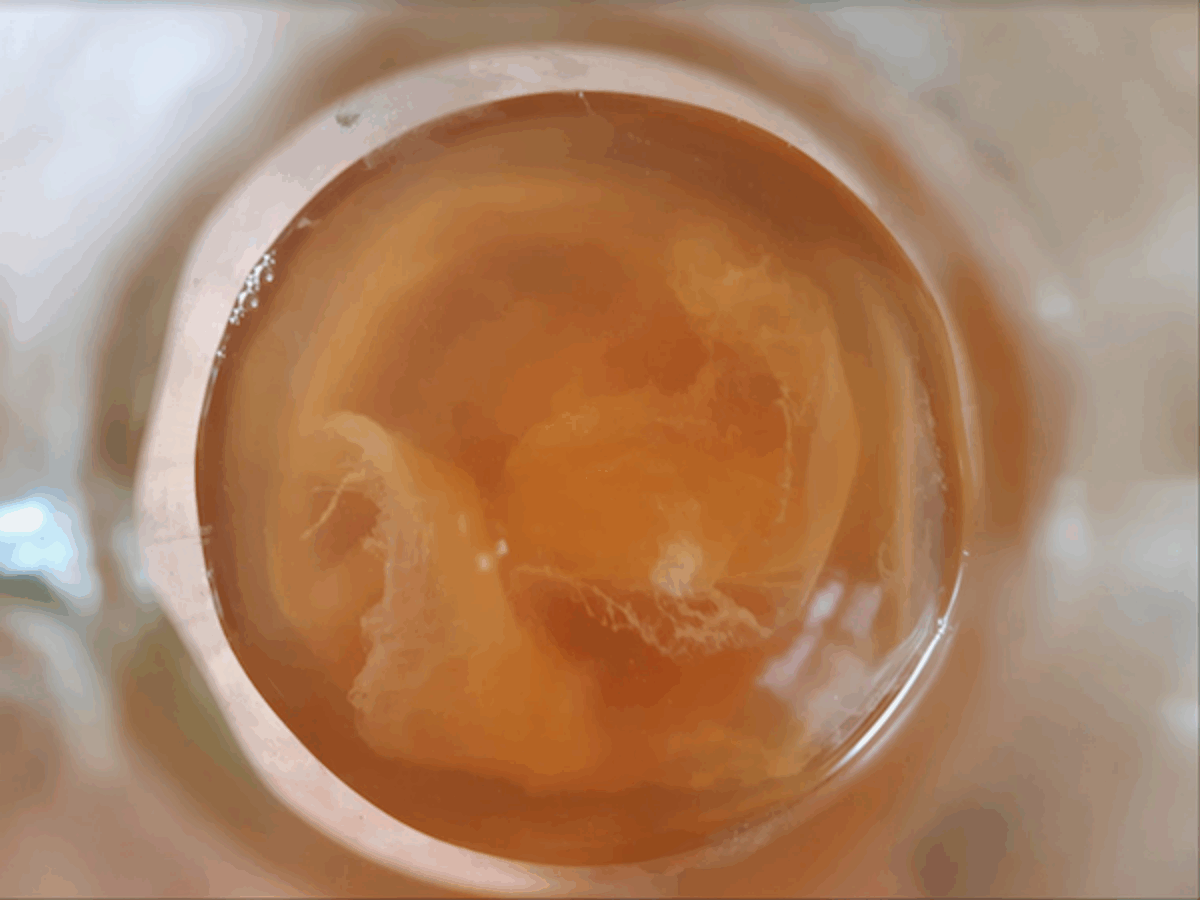
Treat toenail fungus
Toenail fungus infections can make your toenails thick and painful, not to mention that they aren’t very pretty. Instead of going out of your way to buy over-the-counter medications, try apple cider vinegar. ACV has antifungal properties, making it a great way to cure toenail fungus infections.
Mix two parts warm water and one part apple cider vinegar. Soak your feet for ten to twenty minutes, rinse, and then moisturize your feet. If you do this regularly, it should help with toenail fungus.
Treat athlete’s foot
Athlete’s foot is a type of fungus that causes itchiness, burning, and flaking of the skin. Mild cases can be treated with an apple cider vinegar soak, as the antifungal properties of ACV will help clear away the fungus.
Mix two parts warm water and one part apple cider vinegar. If your feet immediately start burning, try adding more water. Soak your feet for ten to twenty minutes, rinse, and then moisturize.
ACV for Weight Loss
The apple cider vinegar detox diet is extremely popular, and people claim that ACV works wonders to help with weight loss. It does so by suppressing appetite, regulating blood sugar levels, and improving metabolism. This study showed that subjects who consumed vinegar lost more weight and had lower triglyceride levels than those who drank no vinegar.
There are also studies that show that ACV stabilizes blood sugar levels, preventing spikes in insulin for people with diabetes. If you consume ACV to help with weight loss, make sure that it’s diluted so that you don’t wear down your tooth enamel.
Try a teaspoon of apple cider vinegar with a cup of water before your meals to help with satiety.
Stabilizes blood sugar
Several studies have shown that apple cider vinegar helps stabilize blood sugar. The acetic acid in apple cider vinegar inhibits the activity of an enzyme called disaccharidase, which is responsible for converting starches into sugars. This means that fewer simple sugars will remain after digestion, which ultimately stabilizes blood sugar. If you had a carb-heavy meal, you might take a bit of apple cider vinegar diluted with water to help you avoid the blood sugar crash.
Aids digestion
Apple cider vinegar, because it is the product of fermented fruits, is a probiotic, meaning it helps your natural gut flora flourish. There are many benefits to having a balanced gut microbiome, from experiencing better digestion to improving your mood.
Apple cider vinegar has long been used as an aid for digestion when taken before meals. Make sure to dilute the vinegar so that it doesn’t damage your teeth if you use it as a digestive aid.
ACV Calming Tea
When you’re feeling down, overwhelmed, or just want to relax, there’s nothing better than a hot cup of tea. Apple cider vinegar has antioxidant properties, among many other health benefits like balancing blood sugar and insulin levels, so this tea is a great after-dinner drink.
For each cup of water, add one teaspoon of apple cider vinegar, one teaspoon of lemon juice, one teaspoon of honey, and one teaspoon of cinnamon or a cinnamon stick.
Treating Oral Thrush
Oral thrush is a fungal infection that occurs when the yeast Candida albicans coats the inside of your mouth. It’s a common condition among people of all ages and can make eating very painful.
If left untreated, it can spread beyond the mouth into the throat. Oral thrush is treated with antifungal medications, which can receive a boost when used alongside apple cider vinegar. Studies show that apple cider vinegar is effective in killing Candida albicans.
Gargle one teaspoon of apple cider vinegar in one cup of water. Rinse your mouth with plain water after.
Treat Jellyfish Stings
If you enjoy wading or swimming in the ocean, you might find yourself covered in jellyfish stings. Jellyfish have long tentacles covered in thousands of barbs that release venom on contact.
For mild jellyfish stings (see a doctor if you have severe symptoms, because they can be life-threatening!), you can use apple cider vinegar to soothe them.
Apple cider vinegar is shown to deactivate the barbs that jellyfish use to inject their venom.
Apple Cider Vinegar Uses for Hair
Commercial products promising healthy hair have some competition. Apple cider vinegar is a wonder for hair, and it doesn’t weigh down or cause damage to your hair like a lot of commercial products do. It’s actually being incorporated into more and more products because of its benefits to hair.
ACV Hair Rinse
Dull hair is usually caused by an alkaline scalp pH. Apple cider vinegar is an acid that can be used to brighten your hair if it needs a boost. It’s much healthier than store-bought hair masks, which might contain chemicals that weigh down and break your hair.
Even if you don’t have dull hair, an apple cider vinegar rinse can still help you by strengthening your strands. To make an apple cider vinegar hair rinse, mix one tablespoon of apple cider vinegar with one cup of water.
After you shampoo and condition your hair, pour the rinse over your hair and let it sit for a few minutes. Rinse your hair with water.
Dry Hair Mask
If your hair needs a bit of extra love, try making an apple cider vinegar hair mask. It’s an effective treatment for dry, brittle hair.
Apple cider vinegar reduces the pH of your hair, strengthening it, and it’s especially effective when mixed with other hair nourishing natural remedies like olive oil and honey.
Mix 1 ½ tablespoons of apple cider vinegar, 2 tablespoons of honey, and one teaspoon of olive oil together in a bowl. Massage through your hair while it’s damp.
Leave it in for ten to fifteen minutes and then rinse.
Treats dandruff
Dandruff is a very common but embarrassing skin condition that happens when the skin on your scalp flakes off. If you use commercial products with certain ingredients very frequently, your scalp can become dry and irritated, leading to dandruff. Dandruff can also be caused by the growth of a fungus called Malassezia.
Apple cider vinegar contains acetic acid, which is a chelating agent. This means it clears mineral deposits and debris. Apple cider vinegar is also able to kill many types of fungus.
Using an apple cider vinegar rinse for your hair will help manage flaking.
Prevents hair dye from fading
If you color your hair regularly, you know that washing your hair removes dye over time. Some people like a faded look, but others want the color to stay in for as long as possible.
You can extend the length of your hair dye and prevent its color from fading by using apple cider vinegar. The process of dying your hair involves opening the cuticles of your hair with alkaline chemicals.
Apple cider vinegar, as an acid, closes the cuticles of color-treated hair, making it less likely to fade over time.
Dilute one-fourth of a cup of apple cider vinegar in one cup of water to make a hair rinse, and use the next time you wash your hair after it’s been dyed.
Hair Detangler (and de-frizz)
If your hair gets matted or tangled easily, you might be tempted to brute-force your brush through your hair, which can lead to pain and damage. Hair gets tangled when the outermost layer, the cuticle, is not flat but lifted. That makes it easier for hair strands to tangle.
Apple cider vinegar flattens and smooths the cuticle. You can make an apple cider vinegar hair rinse that will detangle your hair and boost its natural shine.
Combine one tablespoon of apple cider vinegar for each cup of water. Shampoo and condition your hair, pour the rinse through, and rinse with water after.
Apple Cider Vinegar for Skin
Countless people use apple cider vinegar to help with skincare. Lots of commercial products also incorporate apple cider vinegar as an ingredient because of its benefits to the skin. It contains antioxidants that protect the skin, it is antibacterial, and it helps balance your skin’s pH.
Skin Toner
Your skin is happiest when it’s acidic–healthy skin will usually land around or below 5 on the pH scale. When your skin gets more alkaline, your skin loses its natural acidic barrier, leading to dryness and sensitivity.
The acid barrier also protects against bad bacteria, so if your skin is alkaline, it’s more likely to develop acne or rosacea. People generally use toners to balance the skin’s pH after using alkaline cleansers like soap.
Apple cider vinegar can be made into a toner that replenishes your skin’s natural acidity, protecting against acne, and wrinkles over the long term.
Mix ¾ cup water with 3 tablespoons of apple cider vinegar. Gently dab onto your skin with a cotton ball. Follow up with a serum and moisturizer.
Remove warts
Warts are common, harmless, yet unpleasant growths of the skin caused by the human papillomavirus. Getting rid of warts is difficult, as they don’t go away on their own and are contagious.
You can freeze them off or get them surgically removed, but you can also use apple cider vinegar and spare a visit to the doctor.
Apple cider vinegar contains acetic acid, which can be used to eat away the infected skin and potentially kill the viruses and bacteria around it. Apple cider vinegar can be harsh and may cause chemical burns when it isn’t diluted properly, so exercise caution if you use it to clear your warts.
Dilute two parts apple cider vinegar to one part water. Apply to the wart using a cotton ball for fifteen minutes. Don’t apply for more than an hour, and stop if it feels too painful.
Rinse well with water and moisturize afterward. Repeat daily.
Treats acne
Apple cider vinegar contains alpha hydroxy acids, dissolving the plugs that cause acne. ACV also has been shown to kill certain types of bacteria, so it’s possible that it can also target those responsible for causing acne. Additionally, the acidic properties of apple cider vinegar will help balance out your skin’s pH.
Diluting one tablespoon in two cups of water and then applying to pimples should help clear them.
Treats eczema
Eczema is a very common but uncomfortable skin condition that can’t be cured. Eczema flare-ups cause your skin to become very dry, irritated, and painful. People with eczema tend to have more alkaline skin.
Apple cider vinegar can be used to treat eczema through its ability to balance the skin’s pH. The acetic acid in ACV has also been shown to kill the bacteria that causes eczema.
Adding two cups of ACV to your bath can help soothe symptoms of this disease.
Apple Cider Vinegar for Beauty
Apple cider vinegar makes people beautiful. Is that a stretch? It improves your skin, hair, and has plenty of other applications beyond that. Embrace holistic beauty with apple cider vinegar!
Nail Polish Remover
If you’ve run out of acetone or don’t like the chemical smell, you can use apple cider vinegar to make your own nail polish remover. Soak your nails in warm water for 10-15 minutes.
Mix one part lemon or orange juice with one part apple cider vinegar. Soak your nails in the mixture for 10-30 seconds, and then wipe the polish off with a cotton ball.
Make sure to wash your hands with water and moisturize after.
ACV Deodorant
Body odor is caused by the natural bacteria that live on your skin, which break down sweat into compounds that produce a distinct odor. Sweat itself doesn’t smell like anything, but the bacteria that feed on sweat create that unpleasant smell.
Apple cider vinegar both neutralizes odors and kills bacteria, making it a great natural deodorant.
Mix equal parts of apple cider vinegar and water, adding essential oils if you don’t like the smell of vinegar. Dab it wherever your body needs freshening.
You can also make apple cider vinegar deodorant with clay by mixing one teaspoon of ACV with one teaspoon of clay.
Clean makeup brushes
Did you know that makeup brushes are one of the most bacteria-ridden objects in your home? People often neglect cleaning their makeup, but repeated contact with the air and skin make it easy to harbor and cross-contaminate your makeup with bacteria.
Bacterial contamination can cause acne breakouts. Eye infections from unclean eyeshadow brushes are common and potentially dangerous.
The American Academy of Dermatology recommends cleaning your brushes every 7-10 days. You can use apple cider vinegar to clean your makeup brushes.
Add two tablespoons of apple cider vinegar to one cup of hot water. Submerge the bristles of your brushes in this mixture and then rinse them off with water.
ACV Mouthwash
Apple cider vinegar makes a surprisingly effective mouthwash. Because it contains acetic acid, which kills bacteria, it can help prevent bad breath.
To make an apple cider vinegar mouthwash, mix one teaspoon of apple cider vinegar in one cup of water. Gargle and then rinse with water afterward.
Denture Cleaner
It’s important to clean dentures on a daily basis. Your mouth is a dirty place–food particles that accumulate on your dentures could harbor harmful bacteria. To clean your dentures naturally, you can use apple cider vinegar.
It clears away tartar and kills bacteria. Combine one part apple cider vinegar with one part warm water. Soak your dentures for at least 30 minutes or overnight and then rinse with water before putting them back in your mouth.
Apple Cider Vinegar for Pets
Apple cider vinegar isn’t just great for human skin and hair; it also works well with pets.
As an added bonus, it’s perfect for cleaning up pet accidents and messes too!
Pet Wash
If you want to clean up after your animals but don’t want to expose them or yourself to harmful chemicals, apple cider vinegar is the answer. Apple cider vinegar can be used to make a natural disinfectant that also neutralizes odors.
Combine one part apple cider vinegar with one part water. You can use this disinfectant to clean almost anything–crates, cages, litterboxes, and more.
Natural Flea and tick-repellant
If your pets roam outdoors, it’s very likely that they’ll attract fleas and ticks. Both of these parasites spread disease and can be very harmful to your pet and family. If you want to protect your furry friend from parasites like fleas and ticks, you can make a repellent with apple cider vinegar.
Apple cider vinegar does not kill fleas, but its scent will deter fleas and ticks. Because ACV is safe to ingest, it is much less harmful than store-bought chemical repellent.
Mix equal parts water and apple cider vinegar and spray onto your pet’s coat.
Cleans urine on carpet
Cat and dog urine is notoriously difficult to get out of carpet. The smell of urine is not only gross but will probably compel your animal to keep peeing in the same spots.
You can both remove stains caused by urine and get rid of the smell by using apple cider vinegar. Dog and cat urine contain alkaline salts that are neutralized by the acid in apple cider vinegar.
Mix equal parts water and ACV in a spray bottle and spray generously on the stain. Let it sit for ten minutes, and then wipe.
Pet Health Supplement
Cats, dogs, and even goats can benefit from consuming apple cider vinegar. The process of fermentation to make apple cider vinegar allows for healthy bacteria to grow, making it a great supplement for both you and your animals.
There is growing evidence for the benefits of a balanced, healthy gut microbiome, so introducing some apple cider vinegar to your pet will benefit their overall health.
Mix one teaspoon of apple cider vinegar for every gallon of water that you give to your animals. You can also mix in a small amount of apple cider vinegar into their food.
Pet Dandruff
Dogs experience skin flaking like we do in the form of dander. Dander is a very common allergen and can cause reactions in people. You can use an apple cider vinegar rinse to control dander and make your dog’s coat less flaky.
Before shampooing your dog, massage one part apple cider vinegar and one part water into their coat. Wash your dog thoroughly.
Pet Coat Conditioner
Just like humans, dog hair has layers. The outermost layer is the cuticle, which is responsible for protecting the layers underneath.
When the cuticle is damaged, it lifts, making it more likely to get matted or tangled. Apple cider vinegar helps flatten cuticles so that they become smooth. This will make your dog’s coat shiny and sleek.
Using a diluted apple cider vinegar rinse on your dog’s fur will improve its shine.
Clean Pet water containers
If you have pets, you know that having clean water is extremely important. Water bowls and troughs tend to accumulate a lot of nasty stuff, like algae, which can cause illness in animals. Apple cider vinegar kills bacteria and fungi and prevents algae growth.
Mix a small amount of apple cider vinegar into your water container (for troughs, one cup of apple cider vinegar per five to ten gallons of water; for smaller water containers, one teaspoon of apple cider vinegar per cup of water–adjust dilutions if the animal does not like it) Your animals will also receive the health benefits of consuming apple cider vinegar, like improved digestion.
Apple Cider Vinegar for Cooking
Vinegar is a staple in cooking. It’s used in so many recipes,
Poached eggs
Craving a fancy breakfast with your homestead eggs? Apple cider vinegar will help you perfectly poach your eggs and add delicious flavor. The hardest part of making poached eggs is keeping the egg together in the boiling water.
The acidity of apple cider vinegar firms up the egg white, making it easier for the egg to stay intact.
Stabilizes meringue
Want to make a meringue pie that doesn’t fall and melt immediately? Adding a half teaspoon (2.5 mL) of apple cider vinegar for every egg white helps stabilize meringue, allowing it to keep its fluffy structure after whipping.
Acids help the structural integrity of egg whites by interacting with the proteins.
Salad dressing
Apple cider vinegar makes for a delicious dressing for your homegrown greens and is a much healthier alternative to what you can buy at the store.
Most homemade dressings call for vinegar to add a brightness to balance out the fat and sugar. Apple cider vinegar works particularly well in dressing due to its fruity, sweet taste.
Pan deglazer
After cooking, you might notice some parts of your food stuck to the bottom of your pan. Don’t waste those scraps and deglaze your pan with apple cider vinegar instead!
When you deglaze a pan, you use some kind of liquid to loosen the caramelized bits of food to create a sauce. It also makes cleanup much easier.
Cheesemaking
Cheesemaking is a wonderful hobby, especially if you’re a homesteader. It’s very simple, and you likely have everything you need in the fridge and pantry to make a wide variety of soft cheeses.
Apple cider vinegar helps in the cheesemaking process by curdling whole milk, which is a necessary step for recipes like homemade ricotta.
Marinating meat
You can use apple cider vinegar to tenderize meat, as well as add color and flavor.
Because of its acidity, ACV breaks down the collagen and connective tissues that make meat tough. Watching the marination time is important to prevent meat from getting too mushy.
An additional benefit to ACV in your marinade is that the natural sugars in vinegar will caramelize, resulting in nice brown grill marks. Try marinating your meat for an hour before cooking.
Pickling
Pickles are a simple way of preserving your home-grown vegetables, adding a delicious zing. Pickles aren’t limited to just cucumbers, either. Carrots, cabbage, and Apple cider vinegar tastes a bit milder and sweeter than other types of vinegar, and it complements herbs and spices well.
I have a lot of guides to canning and pickling, all of which call for vinegar, and using apple cider vinegar often results in the best flavor, as in these bread and butter pickles.
Preserving cheese
Apple cider vinegar helps prevent hard cheese from growing mold, which is perfect if you want to make large batches of cheese at home. ACV’s antifungal properties make it great at preserving cheese.
Dampen a cheesecloth or paper towel with apple cider vinegar and store it with your cheese in an airtight container.
Washing vegetables
Because it kills bacteria, apple cider vinegar is great for washing vegetables. It’s safe to consume, as well, so you don’t have to worry about consuming chemicals.
Washing your vegetables in apple cider vinegar and then rinsing with water afterwards will help keep them fresh.
Citrus Substitute
An experienced chef will tell you that salt, fat, acid, and heat are the four elements that you need to master in the kitchen.
Acids play a huge role in cooking by complementing other flavors, like saltiness, sweetness, and bitterness, adding brightness to dishes that would otherwise be too fatty or heavy.
The slightly sweet, fruity flavor of apple cider vinegar makes it a good replacement for acidic elements in cooking, like lemon or lime. When replacing citrus, add about half of the amount of vinegar as citrus.
Reviving wilted vegetables
Leafy vegetables like lettuce don’t last for very long in the fridge because of their high water content, and it’s disappointing to have to throw away so much good produce in such a short amount of time. You can use apple cider vinegar to save your wilted greens.
Submerge the vegetables in a bowl of ice cold water with a small amount of vinegar for thirty minutes. You can use this technique to save other vegetables as well, like bendy carrots or broccoli.
It won’t work very well for vegetables that rot more easily than they wilt, like tomatoes. It also won’t save vegetables that have gone bad or slimy.
Makes homemade ketchup
There are so many sauces that contain vinegar, and ketchup is one of them. This condiment couldn’t be easier to make at home. Apple cider vinegar is sweeter than white vinegar and gives ketchup a complex, fruity flavor.
You might not need as much sugar, although it’s up to you. Here’s a recipe for homemade ketchup from AllRecipes. Just replace the white vinegar with apple cider vinegar.
Homemade barbecue sauce
With your homemade ketchup, why not make barbecue sauce? This tangy southern staple gets its signature zing from vinegar.
Barbecue sauce is made from tomatoes, vinegar, brown sugar, and spices. Apple cider vinegar is a delicious swap for regular white vinegar.
Coleslaw
Coleslaw is a wonderful way to eat your cabbage and carrots. It’s cool and refreshing, especially when paired with heavy barbecue dishes. It’s a great dish to bring to a potluck or to have a side. Coleslaw dressing is made of mayonnaise, vinegar, salt, and pepper.
Using apple cider vinegar in your coleslaw dressing adds a fruity brightness that balances out the denseness of mayo.
Sushi rice
The word “sushi-meshi” means “vinegared rice” in Japanese. While typical sushi uses rice vinegar, apple cider vinegar can be used in its place.
Both rice vinegar and apple cider vinegar are mild and sweet, although apple cider vinegar does have a bit of a brighter taste from the fruit.
If you’re craving sushi rice, you can boil together a half cup of apple cider vinegar, one tablespoon of vegetable oil, one-fourth cup of sugar, and a teaspoon of salt together and then add it to two cups of cooked white rice.
Royal icing
Royal icing is a type of icing made with egg whites and sugar. It’s commonly used for decorating cookies, because it hardens after it cools and has a glossy finish.
You’ll see it used for Christmas cookies and gingerbread houses. It also makes a great icing for cupcakes, cinnamon rolls, and other desserts. If you leave royal icing sitting out for too long, it will separate and become watery.
Adding apple cider vinegar can prevent the royal icing from separating. It works best with colored icing instead of pure white, because it has a slightly yellow tinge.
Boiling potatoes
Boiled potatoes are a staple in a lot of recipes, like potato salad or home fries. It can be hard to boil them perfectly, though–if you over-boil them, they end up mushy and fluffy.
Boiling potatoes with an acid prevents them from losing their structure. On a microscopic level, a sugar called pectin holds plant cells together. When potatoes boil, their cells absorb water and burst.
Vinegar prevents the breakdown of pectin, ensuring that your potatoes stay intact.
If you boil potatoes with a few tablespoons of apple cider vinegar and 2 quarts of water, they’ll keep their structure. You might have to rinse them afterwards to get rid of any lingering vinegar flavor.
Boiling eggs
If you’re a homesteader with backyard chickens like me, eggs are a staple in your diet. Boiling eggs is one of the simplest ways of cooking them.
The process of peeling boiled eggs can be tedious. If you want to make peeling eggs easier, add a few tablespoons of apple cider vinegar to the water you boil your eggs in.
The acidity of the vinegar dissolves the eggshells, which are made of calcium carbonate. Apple cider vinegar also firms up egg whites, so your eggs will be done faster.
Mayonnaise
Store-bought mayonnaise contains a lot of unnecessary additives, and mayo isn’t hard to make at all. You can use apple cider vinegar to make mayonnaise at home easily.
All you need is an egg, one tablespoon of apple cider vinegar, one cup of neutral oil, salt and pepper to taste, and any other spices that you like.
You can use apple cider vinegar mayonnaise for so many things–macaroni salad, grilled cheese, and all kinds of dips.
Egg salad
Egg salad is amazing if you’re a homesteader–you have pretty much everything you need in your backyard and pantry. Homemade mayo, green onions, celery, apple cider vinegar, and eggs?
Try making a sandwich with lettuce, cucumber, and homemade apple cider vinegar egg salad! It’s fresh and delicious, and you can be proud knowing you made it all from scratch!
Ice cream drizzle
Have you ever had balsamic vinegar ice cream? Vinegar and ice cream are certainly an interesting combination. The tanginess of vinegar balances out the creamy sweetness of ice cream, leading to a complex and delicious dessert.
Apple cider vinegar lends itself well to ice cream because it’s sweeter than other types of vinegar.
To make an apple cider vinegar reduction to put on your ice cream, heat 2 cups of apple cider vinegar until boiling. Then, simmer until the vinegar is thick, about 20-30 minutes. If you like your reductions sweeter, add sugar or sweetener to your taste.
Apple cider vinegar glaze goes well with vanilla ice cream and mixed fruit.
Salt and vinegar chips
A tangy, salty, moreish classic! Salt and vinegar chips go really well with burgers and hot dogs, or on their own, too. Making salt and vinegar chips at home is easy, and you can make them with apple cider vinegar.
They taste a bit milder than store-bought salt and vinegar chips because apple cider vinegar isn’t as sharp as white vinegar. Soaking your potato slices with apple cider vinegar for a couple of hours before frying will do the trick and save you the need to buy vinegar powder.
For a healthier spin, you can bake your salt and apple cider vinegar chips.
Adds sharpness to vegan cheese
If you make vegan cheese at home, it might be hard to mimic the same bite or tang that make some cheese dips so delicious. You can make vegan cheese with a sharp taste with apple cider vinegar.
This recipe for vegan queso from The Kitchn is a great example–it uses cashews, nutritional yeast, and apple cider vinegar to bring an extra oomph to your queso.
This recipe from Bragg uses apple cider vinegar to make vegan cheese for your macaroni. The options for dairy-free cheese are endless!
Homemade ACV gummies
Apple cider vinegar is becoming an extremely popular supplement. You might see apple cider gummies being sold in stores. You can easily make your own gummies at a fraction of the cost.
To make apple cider vinegar gummies, heat ⅔ cup pureed berries, ⅓ cup apple cider vinegar, and 2 tablespoons of honey in a saucepan. Add either gelatin or agar while heating and whisking.
After the mixture is smooth and free of clumps, pour it into a mold. Cool in the fridge for 10 minutes and then freeze for 5 minutes.
Apple Cider Vinegar for Baking
Despite its sour, sharp flavor, vinegar is used very often in baking. It’s used for flavor in some recipes, since acid balances other flavors like sweetness and fat nicely. Apple cider vinegar is milder and sweeter in taste than other vinegars, which makes it even better for baked goods.
Provides lift
Apple cider vinegar is useful in baking by providing lift, making baked goods lighter and more airy. Apple cider vinegar is acidic, so when it is mixed with basic ingredients like baking soda, it produces gas. These gas bubbles get trapped inside of flour protein networks while baking, creating pockets that contribute to rise.
Quick breads, like muffins and banana bread, rely on this chemical reaction to rise, unlike yeast breads. You can use apple cider vinegar in any baking recipe that calls for vinegar.
It adds a very subtle fruity flavor and extends the shelf life of baked goods.
Baking Egg Substitute
Cakes use a lot of eggs, which can be a problem for vegans or people who can’t consume eggs for any reason. In cakes, eggs provide lift. When you whip eggs, they trap air, and these air bubbles expand as the batter cooks, allowing the cake to rise and have a tender, fluffy texture.
If you’re egg-free, you can use apple cider vinegar as a substitute. The chemical reaction between acidic apple cider vinegar and basic ingredients, like baking soda, create gas bubbles that cause the cake to rise.
Replace each egg with one teaspoon of baking soda and one tablespoon of apple cider vinegar.
Tenderizes baked goods
Apple cider vinegar can be used as a dough enhancer, since it contains acetic acid. Acids are used as dough enhancers because they are oxidants, which increase the elasticity of flour through chemical reactions.
Other oxidants in dough enhancers, like potassium bromate, are banned in some countries for their carcinogenic properties, so using dough enhancers like apple cider vinegar are a much safer alternative if you want tender bread.
Makes mock sourdough
Sourdough is treasured for its tang, which is caused by the acetic acid produced by bacterial fermentation. If you’re interested in making sourdough but don’t have the time to maintain a starter or can’t adhere to the strict schedule that sourdough requires, you can make a faux sourdough loaf with apple cider vinegar.
Apple cider vinegar contains acetic acid, which is the same acid produced by the bacteria in sourdough. After combining all of the dry and wet ingredients of your dough, add a very small amount of vinegar. It’s recommended to stay at 1% to not kill the yeast.
Dairy-free buttermilk substitute
If you’re plant-based or can’t consume dairy, you can easily make a substitute for buttermilk with apple cider vinegar and the milk of your choice. Soymilk will have the closest texture and nutritional profile to whole milk, but you can use practically any kind of plant milk available.
Add one tablespoon of apple cider vinegar to a glass marked to one cup, and then fill the rest with plant milk.
Pie crust
Any baker can tell you that the crust is the hardest part of making a pie. Despite only calling for flour, fat, salt and water, it’s notoriously hard to get right. Adding a splash of apple vinegar to the cold water in your pie crust recipe will enhance the dough.
It prevents oxidation, which causes the crust to turn gray, so adding ACV to your dough will give it a gorgeous golden-brown color. It also produces a more tender, flaky crumb with a complex taste.
Vinegar pie
Vinegar pie, also called desperation pie, is a vintage dish that dates back to the 1800s.
It uses pantry staples and is great for when you have a craving for a sweet pie without having to buy a lot of different ingredients. Apple cider vinegar only enhances the flavor, adding fruity notes.
Try this recipe from Taste of Home for a classic vinegar pie. Why not pair your vinegar filling with an apple cider vinegar-enhanced pie crust?
Apple Cider Vinegar for Gardening
A true miracle in the house, apple cider vinegar has a place outside the home, too! You can use it for your garden and yard.
Animal repellent
Deer, rabbits, and other mammals are a challenge for homesteaders to deal with, especially if they don’t want to rely on the harsh chemicals of store-bought repellents.
Apple cider vinegar is a nontoxic way to keep animals from messing with your garden, which doesn’t harm them. Mice, deer, rabbits, and chipmunks, among many common pests will be deterred by the acidic smell.
Mix one part apple cider vinegar to one part water and a small amount of cayenne pepper in a spray bottle for a highly effective animal repellent.
Reapply often, especially after it rains. You can also soak rags in pure apple cider vinegar and place them where animals tend to gather.
Cleans rusty gardening tools
If you’re using your gardening tools as often as I am, you know that they get rusty. Rust weakens gardening tools and harms your plants. Hydrochloric acid is the most common remedy for rust on metals, and it works quickly, but it is extremely harsh and dangerous to use.
The acid in apple cider vinegar works wonders on rusty gardening tools. The acetic acid reacts with ferrous oxide, which is the rust on iron. Soak the tools in apple cider vinegar for twelve hours, and then use a brush to polish the tools.
Rinse the tools and then dry. Note that this method works well for iron tools, but certain metals, like aluminum, will instead be damaged by apple cider vinegar.
Traps fruit flies in compost
Composting is a wonderful way to prevent food waste and feed your garden, but you might not like the clouds of fruit flies that swarm your compost bin. You can make a very effective fruit fly trap out of apple cider vinegar. Pour a cup of apple cider vinegar into a small bowl and microwave for a few seconds. Then add a few drops of dish soap to the vinegar.
Because it smells like fermented fruit, ACV is a great bait. The flies will attempt to land on the liquid but will drown, since dish soap breaks surface tension.
Changes colors of hydrangea
Hydrangea, the gorgeous clusters of blooms that you see in the summer and fall, come in a rainbow of colors. Did you know that you can change the color of hydrangea by adding a little apple cider vinegar when you water them?
Hydrangea are sensitive to soil pH.
- Acidic soil (lower than 7) will cause their blossoms to turn blue or lavender.
- More neutral soil (6-7) will make hydrangea pink and red.Alkaline soil (above 7) turns them bluish-pink to purple.
Apple cider vinegar contains acetic acid, which can be used to manipulate soil pH. One cup or less of apple cider vinegar for ten gallons of water is dilute enough to preserve the delicate roots of the plant.
Keeps bird baths clean
The slimy film growing in your birdbath doesn’t look bad to just us; birds also don’t like water that is visibly tainted with algae. You can use apple cider vinegar to both clean and prevent the growth of algae. Soaking your birdbath in a mixture of one part apple cider vinegar to one part water (you can change the dilution depending on the strength of the algae), letting it sit for ten minutes, and then scrubbing and rinsing thoroughly with clean water will get rid of algae.
When you refill your birdbath with water, you can use apple cider vinegar as well. One teaspoon of apple cider vinegar per gallon of water will prevent algae from growing, won’t harm birds, and has the bonus of killing bacteria.
Changes soil pH
Soil pH is an important part of gardening. Depending on where you live, soil can be acidic or basic. Certain plants flourish in acidic soil, such as blueberries, oregano, cucumbers, and azaleas.
You can buy sulfur and aluminum sulfate from a gardening store and give it to your plants, but it could take several months for the soil to become acidic.
Since apple cider vinegar is quite acidic, it has to be diluted before added to soil. For every gallon of water, add one cup of apple cider vinegar. Pour over soil.
Kills slugs and snails
Slugs and snails wreak havoc on gardens, gobbling up and damaging plants. You can easily kill these pests with apple cider vinegar. Because apple cider vinegar acts as an herbicide, don’t spray it directly onto your plants.
You can set a slug trap (a wooden board or flat stones on top of produce work nicely) to attract them somewhere far enough away from your garden, and then spray them with apple cider vinegar.
Kills weeds
Weeds popping up on the sidewalk can be a pain to remove, and store-bought weed killers are bad for you and the environment. You can use apple cider vinegar to kill off weeds quickly.
You can pour apple cider vinegar directly onto weeds, which will kill the leaves first but might take a bit of time before killing the roots. Adding one cup of table salt to every gallon of vinegar will dry out the root system.
You can also use dish soap that will remove the protective coating on the leaves, which will make killing the weeds even more effective.
Cleans small ponds
Seeing muck and scum on the bottom of your pond is a sign that it might be time to clean it. Over time, ponds accumulate bacteria and algae that can kill your plants and fish. Apple cider vinegar will help clear away harmful gunk, as it is antibacterial and antimicrobial.
After removing fish and plants from your pond, drain it completely. Mix one gallon of apple cider vinegar with one gallon of water, pour into your empty pond, and scrub away. Remove the soiled solution from the pond and fill it up with water as you normally would when cleaning.
Balances the pH of your pond
Most plants and animals thrive at a pH between 6.8-7.8. Fish typically have a blood pH of 7.4, and having a pH that is too far from this will stress them out and even kill them. Ponds tend to run alkaline (higher than 7) from algae growth. If you test your pond and see that it’s above 7.8, you can correct the pH by using apple cider vinegar.
Because it is acidic, apple cider vinegar will lower the pH of whatever it is added to. ¼ cup of apple cider vinegar for every 500 gallons of water should lower the pH without harming anything living in the pond. Apple cider vinegar also kills microbes, so it can help prevent algae growth.
Apple Cider Vinegar FAQ
Are you ready to use apple cider vinegar in your home? If you’re looking for more information about apple cider vinegar, here are some frequently asked questions to guide you:
How do you store apple cider vinegar?
A bottle of apple cider vinegar has a long shelf life if stored properly. You should store apple cider vinegar in a glass bottle or jar with a tight-fitting lid. Plastic containers can absorb the flavors and odors of the vinegar over time, changing the taste and quality.
Store it in a cool, dark place, like a pantry or cabinet, away from direct sunlight and heat.
Does Apple Cider Vinegar go bad?
When stored properly, apple cider vinegar has an extremely long shelf life and can last for years. ACV is self-preserving. Because it is acidic, it prevents the growth of common household bacteria, so it doesn’t really go bad. That being said, its taste and appearance might change. It tastes more acidic over time. It may get cloudy, and you might notice sediment growing in the bottle.
How is Apple Cider Vinegar Different from Other Types of Vinegar?
Apple cider vinegar is different from other types of vinegar in many ways.
The flavor of apple cider vinegar is rich, slightly sweet, and fruity, because it’s made of apples. Other types of vinegar, such as white vinegar or rice vinegar, are made from different base ingredients and go through a different fermentation process. White vinegar is made from grain alcohol, balsamic, white wine, and red wine vinegars are made from fermented grapes.
The concentration of acetic acid varies among different types of vinegar. Apple cider vinegar has 5-6% acid. White vinegar is 5-10% acidic. Red wine, white wine, and balsamic vinegars are 6-7%. ACV is generally less acidic than other types of vinegar.
The appearance of apple cider vinegar is unique to other vinegars. It is a light golden brown. White and rice vinegar are clear, and red wine vinegar is dark red.
How Acidic is Apple Cider Vinegar?
Apple cider vinegar has a standard acidity of 5% acetic acid. It contains acetic acid, malic acid, and citric acid. The pH of apple cider vinegar is 2-3, making it a mild acid. For reference, the pH scale ranges from 0-14. Acids are below 7, and some common household acids include lemon juice, coffee grounds, and vinegar. Bases are above 7 on the pH scale, and some common bases include baking soda and ammonia. Distilled water is neutral at 7.
The strength and the pH of an acid are different. Generally, the strength of an acid refers to its concentration in a solution. In apple cider vinegar, the strength is around 5%. Adding non-acidic substances to an acid, like adding water to vinegar, will decrease the strength because the concentration of the acid is going down. The pH will increase because it will become less acidic.
Can You Drink Apple Cider Vinegar?
It’s not recommended that you drink straight apple cider vinegar. The harshness of the acid will erode your tooth enamel. Try diluting apple cider vinegar with water (one tablespoon in one cup of water should work) before consuming to minimize the damage it has on your teeth.
Can I Drink Apple Cider Vinegar Everyday?
It’s perfectly safe to consume apple cider vinegar every day. Again, it’s not the best if you drink it straight, because the acid in apple cider vinegar will dissolve your tooth enamel. Moderation is key, and if drinking ACV every day is causing you problems, try reducing the amount or frequency that you drink it.
Should You take Apple Cider Vinegar in the Morning or at Night?
You can take apple cider vinegar both in the morning and at night. Most people like taking apple cider vinegar before each meal, because it helps with digestion, and before going to sleep, which can help stabilize your blood sugar. You can take it any time of the day, especially if you’re trying to be conscious of your blood sugar levels.
Useful Lists
Looking for other ways to use common household items?
- 70+ Uses for Wood Ash
- 40+ Uses for Spent Coffee Grounds
- 70+ Practical Uses for Baking Soda
- 40+ Ways to Use Honey (Besides Eating It)
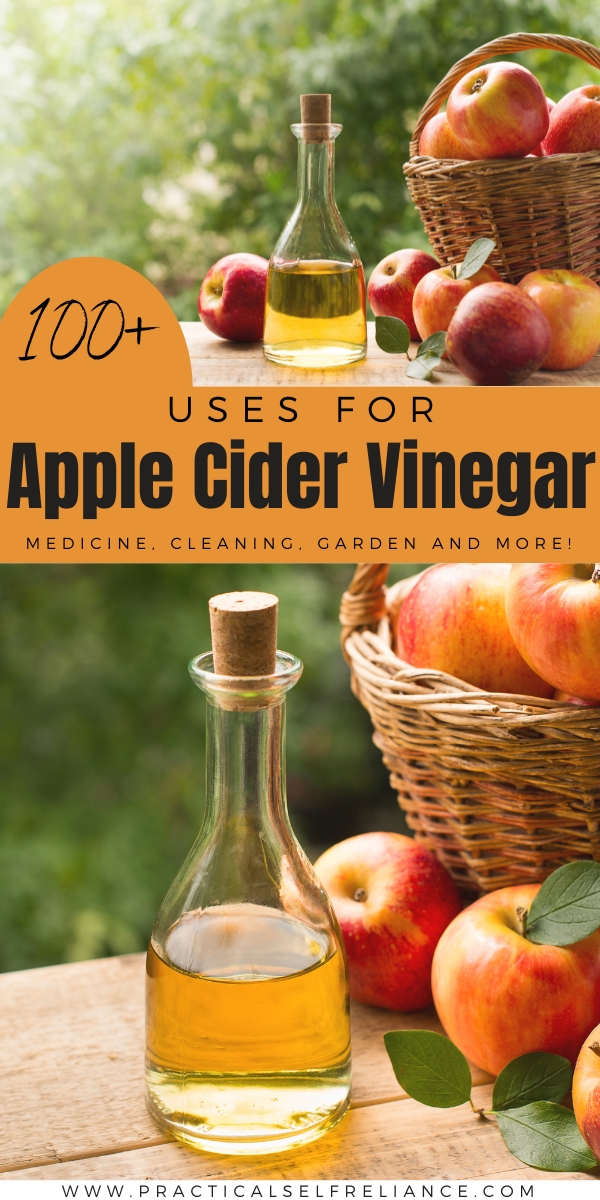
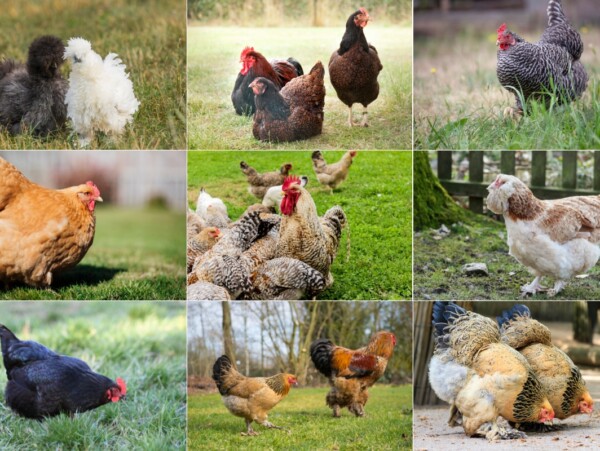
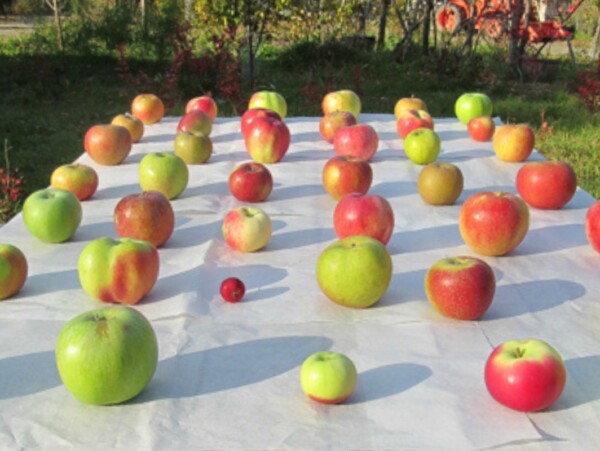
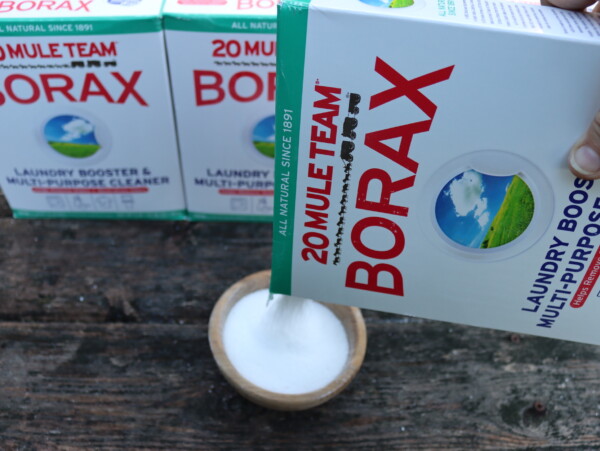
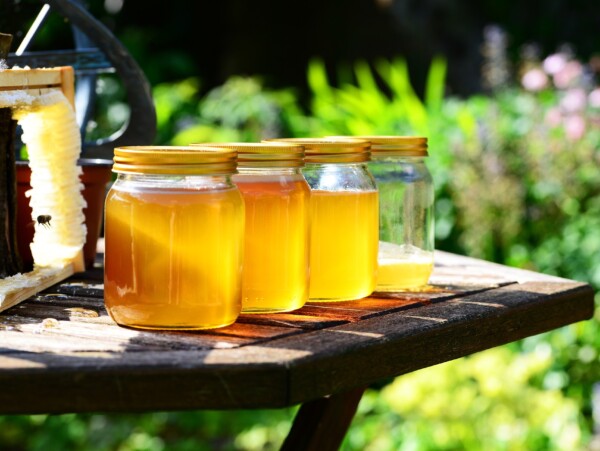





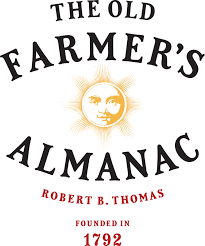

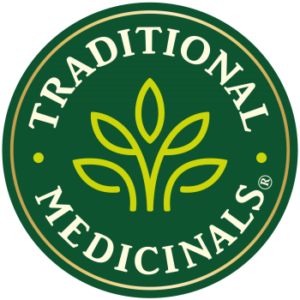


Discovering the multitude of uses for apple cider vinegar beyond the kitchen is truly eye-opening! From cleaning to beauty routines, the possibilities seem endless. A diluted solution of ACV as a natural fabric softener in your laundry is great! It not only softens clothes but helps in reducing static and maintaining the freshness of your clothes. Thanks for sharing these great tips!
You’re very welcome.
Thank you for sharing this informative article; it will really help me.